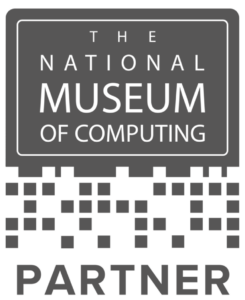Reflecting on my hospitalisation with intestinal and heart issues in June 2023, it remains clear that the fundamentals of communication, cooperation, and collaboration (the 3Cs) require consistent and constant attention in healthcare and service management. Like a medical ward, ineffective 3Cs in IT service management can put the organisation and the customer at risk.
The 3Cs, SPOC, data and value streams
During my stay, the lack of a comprehensive triage process led to missteps in diagnosing my condition, highlighting the importance of thorough 3C team practices. The issues I experienced were reminiscent of problems in service management when Team A failed to communicate fully with Team B or senior management or vice versa. Effective communication channels enhance cooperation and collaboration platforms, which are crucial to ensure that all relevant information is shared, enabling teams to work together seamlessly.
Furthermore, the hospital experience highlighted the importance of having a single point of contact and a collective plan for problem resolution. As I was attended to by multiple teams, such as Surgical, Cardiac, Gastro, Anaesthesia, and A&E, I was unsure who was in charge of my case. This lack of clarity and ownership created confusion. It hindered the development of an effective care plan for the doctors and the nurses caring for me. Similarly, in ITSM, having a designated service owner or incident manager as a single point of contact ensures accountability and streamlines problem resolution, avoiding unnecessary delays, miscommunication and wasted effort or materials.
My experience underscored the importance of better coordination regarding patients’ medical histories. Despite their knowledge of my glaucoma and taking eye drops daily, the medical team prescribed a drug that significantly affected my heart rate. This was the second time I was given a heart drug that jeopardised my life or, at least, complicated any remedial steps during my stay. This highlights the necessity for senior consultants to override documented practices when necessary to prioritise patient safety.
Think of it in terms of an old ITSM data cycle known as DIKW – data becomes information when grouped such that knowledge can be applied to the management of a service. Wisdom develops over time, and the senior consultants, like technical or advanced ITSM support, need to interject that wisdom so that the entire care team (service team) can provide the best possible resolution.
Moreover, my hospitalisation emphasised the need for continuous improvement by applying value stream management principles. In the hospital setting, as in service management, a culture of constant improvement is essential to optimise workflows and deliver better outcomes. Regularly reviewing processes, identifying bottlenecks, and implementing enhancements can improve patient care and service delivery. Applying value stream management principles, such as mapping patient or service journeys, helps identify areas for improvement, ensuring that people, processes, and tools are effectively utilised.
Well-being or mental health
The array of patients with varying conditions and needs can cause significant mental distress. Although hospitals cannot avoid this mix, healthcare professionals must prioritise attentiveness and empathy towards each patient’s emotional well-being. Unfortunately, in my case, only one nurse recognised and addressed my growing depression and stress, indicating the need for improved attention to patients’ mental health.
The same thing happens in ITSM, where a customer becomes frustrated, especially when information transparency is lacking. Think about service outages impacting hundreds, if not thousands, of individuals at airports, trying to reach their destination yet stymied by any single point of contact or information. Stress, depression, anger and worse can all develop. A well-managed service team works hard to avoid this, guaranteeing the safety of all involved.
Who is best placed to run the incident?
On day 9 in hospital, unable to contain my frustration, I simultaneously confronted all the teams and senior consultants. Drawing on my extensive experience managing incidents as a former CIO, I led them through a reflection on my stay, compelling them to design and implement corrective actions with a clear resolution strategy and path towards my discharge. This sense of empowerment resulted in my release and created an agreed approach for future problem resolution. We often hear that the one closest to the customer is best placed to be the single point of contact. I submit that sometimes the customer, being closest to the issue, is the best person to be that SPOC. You’d be surprised at how well teams respond to working directly with the customer driving up satisfaction across the board.
Back home, I realise senior consultants can only visit some patients daily. However, they are critical in removing obstacles along the patient’s journey and preventing repeated failures. The cardiac consultant acknowledged his team’s shortcomings and took ownership of the situation, emphasising the importance of accountability and continuous improvement. I expect senior management in IT or other areas to also step up to the plate, admit failures or shortcomings, and then help their teams remove obstacles to success.
Takeaways:
- Effective communication and collaboration: prioritise clear and consistent communication between different teams and departments, sharing information and collaborating on solutions to prevent avoidable mistakes.
- Single point of contact and ownership: establish a single point of contact, such as a service owner or incident manager, to coordinate actions, improve accountability, and streamline decision-making.
- Incident and problem management: apply structured but flexible (empowered to the team) incident and problem management practices, promptly identifying and triaging incidents, investigating root causes, and implementing preventive measures to enhance patient care and minimise errors.
- Continuous improvement and value stream management: embrace a culture of constant improvement, regularly reviewing processes, identifying bottlenecks, and implementing enhancements to optimise workflows and deliver better outcomes.
In conclusion, my hospital story serves as a powerful reminder of the core principles of ITSM: effective communication, cooperation, collaboration, problem management, and continuous improvement. Organisations can enhance patient care, streamline operations, and minimise risks by incorporating these principles into healthcare and service management.
Whether in a hospital ward or an IT service desk, prioritising these fundamentals enables us to deliver better services and provide optimal support to those who rely on us. No one wants a scenario whereby the operation (process) was a success, but it was a shame that the patient died (the customer became dissatisfied and went to another organisation).



